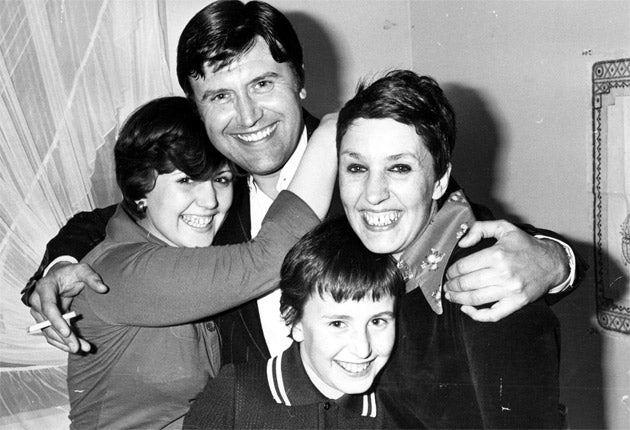George Davis back to prove he is innocent, OK?

The question of whether George Davis, armed robber and East End legend, really was "innocent, OK?" was finally being considered in the Court of Appeal yesterday. The notorious slogan, daubed on walls, bridges and emblazoned across the shirts of rock stars came to symbolise the breakdown of faith in the police and criminal justice system in the 1970s.
But although Davis was released two years into his 20-year prison sentence for taking part in the 1974 armed payroll heist on the London Electricity Board in Ilford, Essex, his innocence was never satisfactorily established.
Yesterday, aged 69, and with two subsequent convictions for armed robbery to his name, Davis was back in court – this time sitting in the public gallery watching his legal team seeking to overturn the original verdict and secure compensation for his ordeal. As he left at the conclusion of proceedings he said he hoped it "turns out nice".
Earlier, in a statement, his solicitor said evidence that could potentially prove his client's convictions for robbery, wounding with intent and resisting arrest was unsafe had been in the hands of the authorities since 1977.
Bernard Carnell, consultant at solicitors Shaw Graham Kersh, said: "If, as I believe, there has been a failure for over 30 years by those in authority to disclose essential evidence which could have demonstrated that Mr Davis was innocent, it is as serious an affront as there could be to the expectation of a defendant having a fair trial."
The convictions were finally referred to the court by the Criminal Cases Review Commission (CCRC) last year.
The two-day hearing before three senior judges will consider claims that the prosecution's failure to disclose key evidence at the trial – as well as subsequent findings by the independent police investigation and from the CCRC investigation – merits the quashing of the original convictions.
While the original crime was relatively unremarkable by the violent standards of the day, being carried out at a time of escalating numbers of armed attacks by career criminals on cash targets, what followed set it apart from the usual heist.
Davis's former wife Rose, who died in 2009, was a passionate defender of her husband, a part time docker and driver, whom she believed was incapable of committing a serious offence. The Free George Davis Campaign took on a life of its own. As well as the graffiti slogans, his supporters ram-raided newspaper offices on Fleet Street and drove at the gates of Buckingham Palace.
Davis also enjoyed support from The Who's Roger Daltrey, who sported a campaign T-shirt, while punk band Sham 69 asserted the conviction was a stitch up in their song lyrics.
Labour Home Secretary Roy Jenkins took the unprecedented step of releasing Davis through the exercise of the Royal Prerogative of Mercy, although this failed to satisfy the question of whether or not he had been fitted up as supporters claimed.
Mr Davis was arrested with three other suspects after being identified by police and a woman who claimed to have seen him fleeing to a getaway car. But she later failed to pick him out at an ID parade and one of the officers who had been shot at during the escape partly retracted his evidence.
Davis also produced a log book supporting his claim that he was driving a taxi that day, and none of the blood samples found at the scene matched his. At the Old Bailey trial only Mr Davis was convicted and given a 20 year sentence, later reduced to 17 years.